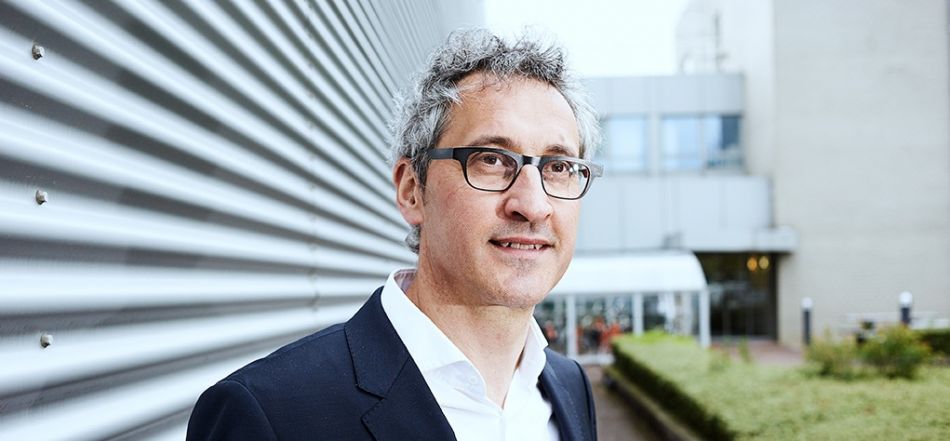It is fantastic to see how the deployment of people and resources is changing more and more rapidly these days. Walter Eevers, director of R&D at VITO, says.
Opinion article in Trends
In the global competition for sustainable technology, we cannot miss the boat. Europe and Flanders are trying to take important steps towards a higher level of sustainability in various areas. This is a fairly recent phenomenon that is particularly visible in industry, mobility and energy. Governments are creating new instruments that support innovation towards more sustainable solutions, such as the Green Deal in the European Union and the Moonshots in Flanders. European multinationals with well-known names set the tone and score the highest on all possible new sustainability rankings. Even financial instruments such as pension funds take the bend and give priority to investments that strengthen sustainable development.
And, last but not least, public opinion is also putting pressure. They, too, realise that the only future for humanity is one with respect for the planet and everything that lives on it. But above all, the strong signal that the Greta's and Anuna's are giving worldwide testifies to vision: we have to follow science and it is time that political leaders listen better to the insights and predictions of scientists from all over the world.
As this storm of public outrage raged through our cities, the innovation landscape faced another challenge: the digital transformation. With further innovation in 4G and 5G networks and the introduction of smart sensors, manufacturing is now also in the sights of change. Very quickly, the entire innovation value chain is incorporating this evolution - or rather revolution - into all its activities. Governments are creating new subsidy programmes, research programmes focused on data science and cyber security. Manufacturing companies are experiencing the need for this type of innovation, because they are being hacked into and undermined in their activities to such an extent that they suffer major economic losses. Traditional banks face competition from other global players such as Facebook and other social platforms that threaten their survival.
From sustainability over data to corona and back again?
And as if that were not enough, mankind is facing a pandemic on an unprecedented scale. The global economy is on the drip of governments that must do everything in their power to prevent the system from collapsing. They are counting on scientists and economists to find solutions. The speed at which initiatives get off the ground has never been seen before. Here, too, we see how public opinion is putting pressure: almost all means are good to stop this pandemic. Heartwarming are the initiatives from all sectors that, each in their own way, want to make a contribution. The commitment of organisations, professionals and citizens is great.
This pandemic will hopefully pass quickly. Nevertheless, it will leave traces. Already now, political and economic strongholds are looking forward: what will happen after this pandemic? What will the world look like then? My group in innovation management is already working on that as well.
All colleagues in the innovation value chain will have to make choices. It goes without saying that in the very near future those choices will have an influence on how the 3Ps of sustainability (people, planet, profit) will operate. The fact that trade-offs will be made between short and long term solutions based on economic thinking is only one of them. The fact that more attention will be paid to local solutions than the global approach that has often been preferred up to now also seems to be a clear case. The health crisis will feed the debate on the extent to which market-driven or socially led innovations should or can be considered. The crisis is still ongoing, and various governments and interest groups are already citing the ideological dividing lines on how to proceed.
The sustainability issue, the digital transformation and the pandemic that is affecting us now have one thing in common: if we want to solve them, we need scientists and we need to call in experts. Experience shows that the urgency must be great enough before politicians set aside their own agendas and use the scientist as a GPS. The conclusion is clear: in order to meet these challenges, science must be the guiding principle and science must be part of that policy.



